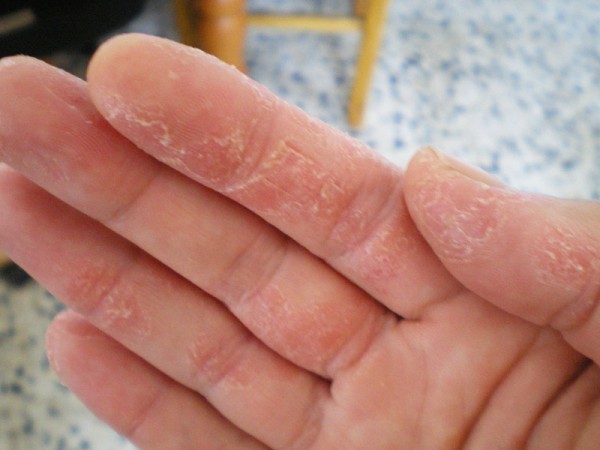
Experiencing peeling skin on your hands and feet can be uncomfortable and concerning. However, it's essential to understand that several factors can contribute to this issue. By identifying the underlying cause, you can take the necessary steps to address it effectively.
Common Causes of Peeling Skin
Dry Skin: One of the most common reasons for peeling skin is dryness. When the skin lacks moisture, it can become flaky and start to peel, especially in areas like the hands and feet where the skin is frequently exposed to environmental stressors.
Sunburn: Overexposure to the sun's harmful UV rays can damage the skin, leading to sunburn. Peeling often occurs as the skin tries to repair itself after sun damage.
Allergic Reactions: Allergic reactions to skincare products, detergents, or certain fabrics can cause inflammation and peeling of the skin.
Skin Infections: Fungal infections like athlete's foot or bacterial infections can cause peeling skin, particularly on the feet. These infections thrive in warm, moist environments, making the feet susceptible.
Eczema and Psoriasis: Chronic skin conditions such as eczema and psoriasis can cause peeling, redness, and irritation. These conditions often flare up due to triggers like stress, certain foods, or environmental factors.
Effective Ways to Get Rid of Peeling Skin
Hydrate Your Skin: Moisturize regularly with a thick, hydrating cream or ointment to replenish moisture and prevent further peeling. Look for products containing ingredients like hyaluronic acid, glycerin, or shea butter.
Protect From the Sun: Shield your skin from the sun's rays by wearing sunscreen with a high SPF and seeking shade during peak hours. This can prevent sunburn and reduce the risk of peeling.
Avoid Harsh Products: Choose gentle, fragrance-free skincare products that won't irritate or strip the skin. Opt for mild cleansers and laundry detergents to minimize the risk of allergic reactions.
Treat Infections Promptly: If you suspect a fungal or bacterial infection, seek treatment from a healthcare professional. They may prescribe antifungal or antibacterial medications to clear the infection and alleviate peeling.
Manage Chronic Conditions: Follow a consistent skincare routine and work with a dermatologist to manage conditions like eczema and psoriasis. They can recommend appropriate treatments, such as topical corticosteroids or moisturizers containing ceramides.
Exfoliate Gently: Use a mild exfoliating scrub or gentle exfoliating tool to remove dead skin cells and promote renewal. However, avoid over-exfoliating, as this can exacerbate peeling and irritation.
Stay Hydrated: Drink plenty of water to keep your skin hydrated from the inside out. Hydration is essential for maintaining skin health and preventing dryness.
Peeling skin on the hands and feet can stem from various factors, including dryness, sunburn, allergic reactions, infections, and underlying skin conditions. To address this issue effectively, it's crucial to identify the root cause and adopt appropriate skincare measures. By moisturizing regularly, protecting your skin from the sun, avoiding harsh products, and seeking treatment for infections or chronic conditions, you can promote healthy, supple skin and reduce the likelihood of peeling.
Tata-Owned Air India Cuts 180 Jobs, Cites Business Streamlining
Top 10 Wholesale Business Ideas
You can register the location of your home on Google Maps, know the process